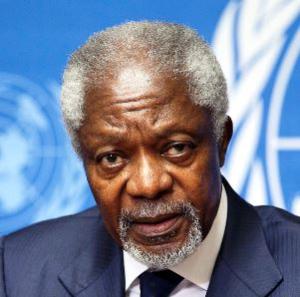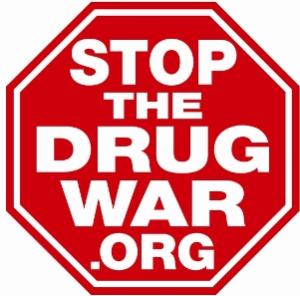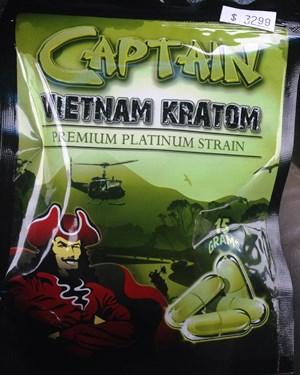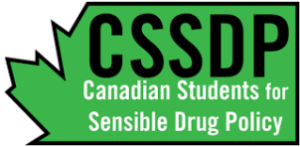2014 was a big year for drug reform, and for a change, the US is pulling things in the right direction. But it some places, it's been business as usual, and in others, things have gone in the wrong direction. Here are our big international stories of the year.
2014 saw great victories for drug policy reform, but they are already under attack by the opposition. Please make a generous end-year donation (tax-deductible available) to help us secure our victories and win more, for marijuana policy and stopping the drug war as a whole.
There could be dispensaries in Las Vegas as early as next week, and soon in San Diego, Illinois posts rules for kids' medical marijuana use, Florida tries again on crafting medical marijuana regs, and more.
It looks like even corrupt cops take a holiday break. This week, we have only a pair of jail guards in trouble, and a Tulsa cop heading to prison for dirty dealing.
Colorado gun activists want pot consumers to be able to pack heat, Illinois posts rules for medical marijuana for kids, Lebanese hash farmers like all the legalization talk, a French report calls for a state monopoly on pot, and more.
Some Nebraska counties are charging possession of pot brownies as a felony, Oklahoma activists will rally against the state's lawsuit against Colorado's marijuana law, San Diego closes more dispensaries, a new document reveals links between cartel gangsters and cops in Northern Mexico, and more.
The Tampa Bay Tribune has an explosive expose of the police-snitch culture there, a revenge hack attack on Columbia, Missouri; Michigan's governor signs a welfare drug test bill, and more.
Marijuana use among adults is up in legal marijuana states -- but some others, too -- Las Vegas could see dispensaries as early as next week, US drone strikes targeted Afghan drug traffickers, Evo Morales wags a finger at US drug policy, and more.
2014 was a big year for drug reform, and for a change, the US is pulling things in the right direction. But it some places, it's been business as usual, and in others, things have gone in the wrong direction. Here are our big international stories of the year.

Assistant Secretary of State William Brownfield dropped a bombshell in October. (state.gov)
Two more states and the District of Columbia legalized marijuana at the ballot box this year. That makes four states and DC that have legalized it. The US has historically been the leading enforcer of global drug prohibition, but the actions of voters in American states have seriously undercut the (now former, see below) US position, as well as providing an example to the rest of the world.
The US Signals a New Openness to Drug Reform at the International Level
In a little-heralded, but groundbreaking move, US Assistant Secretary of State William Brownfield, head of the Bureau of International Narcotics and Law Enforcement Affairs ("drugs and thugs"), made it clear that the US is willing to embrace flexibility, up to and including drug legalization in other countries, in the face of rising calls for international drug reform.
Brownfield succinctly laid out the US approach in an October speech: "First, respect the integrity of the existing UN Drug Control Conventions. Second, accept flexible interpretation of those conventions… Third, to tolerate different national drug policies, to accept the fact that some countries will have very strict drug approaches; other countries will legalize entire categories of drugs. All these countries must work together in the international community. We must have some tolerance for those differing policies. And our fourth pillar is agreement and consensus that whatever our approach and policy may be on legalization, decriminalization, de-penalization, we all agree to combat and resist the criminal organizations -- not those who buy, consume, but those who market and traffic the product for economic gain. Respect the conventions; flexible interpretation; tolerance for national policeis; criminal organizations -- that is our mantra."
Calls for an End to Drug Prohibition Increase as the 2016 UNGASS on Drugs Looms
This year saw the pressure for reform of the international drug control regime grow even more intense, and fractures in a now crumbling prohibitionist consensus grew even deeper. The UN Commission on Narcotic Drugs meeting in Vienna in March revealed schisms among countries about future steps on global drug control even as the global drug bureaucrats gave signs of softening in some policy areas, especially around emphasizing public health as opposed to criminalization. The meeting ended with a formal joint ministerial statement agreed to at the last minute after months of contentious wrangling, but one where countries failed to agree on a common approach and where certain fractious issues -- such as the use of the death penalty for drug offenses or even the mention of the term "harm reduction" -- were omitted entirely.

Former UN head Kofi Annan made his drug reform presence felt this year. (un.org)
Countries critical of the global drug policy status quo, particularly from Europe and Latin America, were joined by an ever-stronger civil society presence at the
CND. The message of reform grows ever louder and presages an especially contentious next step, the UN General Assembly Special Session (
UNGASS) on Drugs, set for 2016.
During the rest of the year, the call for reform from civil society only grew louder. In May, the London School of Economics (LSE) published a Ending the Drug Wars: Report of the LSE Expert Group on the Economics of Drug Policy, signed onto by five Nobel Prize-winning economists, as well as political figures including British Deputy Prime Minister Nick Clegg, Guatemalan Foreign Minister Luis Fernando Carrera Castro, former Polish President Aleksander Kwasniewski, former US Secretary of State George Schultz, and former European Union High Representative for Common Foreign and Security Policy Dr. Javier Solana, among other luminaries.
"It is time to end the 'war on drugs' and massively redirect resources towards effective evidence-based policies underpinned by rigorous economic analysis," the report says forthrightly. "The pursuit of a militarized and enforcement-led global 'war on drugs' strategy has produced enormous negative outcomes and collateral damage. These include mass incarceration in the US, highly repressive policies in Asia, vast corruption and political destabilization in Afghanistan and West Africa, immense violence in Latin America, an HIV epidemic in Russia, an acute global shortage of pain medication and the propagation of systematic human rights abuses around the world."
That was followed in June by the West Africa Commission on Drugs, which was initiated by former UN Secretary-General Kofi Annan of Nigeria, is headed by former Nigerian President Olusegun Obasanjo, and includes other former heads of state as well as a distinguished group of West Africans from the worlds of politics, civil society, health, security and the judiciary. The commission issued a report, Not Just in Transit: Drugs, the State and Society in West Africa, calling for the decriminalization of drug use, treating drug use primarily as a public health issue, and for the region to avoid becoming the next front line in the failed war on drugs.
And then, in September, the Global Commission on Drug Policy, which includes Annan, former presidents Fernando Henrique Cardoso (Brazil), Ernesto Zedillo (Mexico) and Ruth Dreifuss (Switzerland), and others, issued a new report, Taking Control: Pathways to Drug Policies that Work. It boldy called on "governments to decriminalize a variety of illegal drugs and set up regulated drug markets within their own countries."
Uruguay Forges Ahead With Marijuana Legalization
President Jose "Pepe" Mujica may be gone -- his term expired -- but his legacy of legalizing the marijuana trade lives on. There was some doubt as Uruguayans voted on his replacement -- the opposition candidate vowed to roll it back -- but they chose a successor from his same party who will uphold and implement the legal marijuana commerce plan. Uruguay never criminalized pot possession, and now it is the first country to legalize the trade. Implementation should continue apace next year.
Afghanistan Pumps Out More Opium
As the US and NATO declare an end to their Afghan war, Afghanistan is growing and producing as much opium as ever. According to the UN Office on Drugs and Crime (UNODC) Afghanistan Opium Survey 2014, land under poppy cultivation increased 7% this year. UNODC estimated opium production this year at 6,400 tons, up 17% over last year. But while annual production has been at 6,000 tons or more for the past few years, it is not as high as the record year of 2007, when production totaled over 8,000 tons. And this as the US spent $7.6 billion to fight the opium trade since invading in 2001.
And the Golden Triangle Is Back, Too
Opium production increased again in Southeast Asia's Golden Triangle this year, continuing a pattern of growth that has now gone on for at least the past eight years. According to the UN Office on Drugs and Crime (UNODC) Southeast Asia Opium Survey 2014, the region produced 762 tons of opium this year, with the vast majority coming from the Burmese Shan State. While Golden Triangle production accounts for only about 10% of global opium production, Burma is now the world's second largest opium producer, behind Afghanistan.

In Afghan fields, the poppies grow... and grow... and grow. (unodc.org)
It's been the best of times and the worst of times for Mexican President Enrique Pena Nieto and his government's prosecution of its war against the drug cartels. While media attention to the Mexican drug war has declined dramatically since 2012 -- an election year in both the US and Mexico -- the drug war hasn't gone away, and the death toll has plateaued, but not declined. The year started off great for Pena Nieto with the arrest of the heretofore seemingly invincible Chapo Guzman, head of the Sinaloa Cartel. Other major cartel figures have been killed or arrested throughout the year. But things turned sour again this fall when drug gang-connected elected officials in Iguala, Guerrero, sicced local police and the local Guerreros Unidos gang, on busloads of protesting radical teachers' college students, leaving 43 missing and presumed dead. That led to mass protests against lawlessness, official corruption, and impunity across the country.
Now Part of Russia, Crimea Rolls Back Harm Reduction Measures
Whatever one thinks of the Russian annexation of the Crimean peninsula from Ukraine, it's been bad news for Crimean drug users. While Ukraine has embraced a harm reduction approach to hard drug use, Russia rejects such an approach and has some of the most repressive drug laws in the world. And it moved quickly in Crimea, banning the use of methadone almost immediately, which the International HIV/AIDS Alliance called "a disaster for health, human rights and the HIV epidemic in the region." By June, with more than 800 people cut off from access to opiate maintenance, activists were reporting 20 deaths among drug users and that many others had fled to Kiev, while those that remained were turning to street drugs. Things have only gotten worse, and Ukraine shares somes of the responsibility for using the opiate maintenance programs as a political weapon against Crimea. Now, only does the ban on opiate maintenance remain, but drug users face assaults in the streets, as well as stays in jail. And the only "treatment" offered is Russian-style "psychiatric treatment."
back to top
Dear reformer:

Please Make a Generous End-Year (Tax-Deductible) Donation to StoptheDrugWar.org
Initiatives to tax and regulate marijuana passed in two additional states, bringing the number of legalization states to four. A measure legalizing possession and home growing of marijuana passed in Washington, DC by nearly 70%. And Congress – yes, Congress – has passed historic, long sought legislation blocking the Dept. of Justice from using taxpayer funds to undermine state medical marijuana laws.
But our victories are already under attack. In the same bill that protected medical marijuana, a handful of regressive members of Congress also got language included that may block DC's initiative from taking effect. Of even greater concern is a lawsuit filed this month by Nebraska and Oklahoma – neighbors of Colorado – seeking to overturn legalization in Colorado. They argue that federal marijuana prohibition preempts Colorado's voter-backed legalization measure, and that the US is violating international drug control treaties by permitting it to continue.
StoptheDrugWar.org is launching a coalition to take on international drug policy, including but not limited to reforming the treaties to explicitly allow countries to experiment with legalization systems. The first meeting is taking place in January. We need your financial support to be able to consistently keep our focus on this effort. In 2016 the UN General Assembly will hold a Special Session on Drugs, which makes the work of building and organizing this coalition critical right now.
Because marijuana prohibition is not the only bad drug policy, we also need your support to continue our work of advancing the dialogue on prohibition as a whole, while supporting smaller changes to other drugs' policies such as sentencing reform, medical availability, harm reduction programs like needle exchange, demilitarizing the drug war at home and broad, ending collateral consequences such as denial of college aid or food assistance because of drug convictions, more. Our newsletter, Drug War Chronicle, continues to be a core tool used by organizations, media, policymakers and other concerned parties in the long process of drug policy reform. Read some of their testimonials online here.
We can't continue this fight without you. Donations from our members – large ones and small ones – are an absolutely essential part of our budget, and without them this work will stop. Will you step up during these final days of the year with a generous tax-deductible donation to our educational work, or a non-deductible donation to support our lobbying work?
Donations can be made online by credit card or PayPal at http://stopthedrugwar.org/donate. To donate by mail to our tax-deductible educational arm, please make your check or money order payable to "DRCNet Foundation" and send it to P.O. Box 9853, Washington, DC 20016. To donate by mail to our lobbying organization, please send it to "Drug Reform Coordination Network," same address. We also accept donations by stock -- the information to give your brokerage is Ameritrade, (800) 669-3900), DTC #0188, and account number 781926492 for tax-deductible gifts to DRCNet Foundation or 864663500 for non-deductible gifts to Drug Reform Coordination Network -- please contact us if you are donating in this way.
Thank you for being a part of these historic changes that my organizations and others are working so hard to bring about. With your help, we'll continue to win!
Sincerely,

David Borden, Executive Director
StoptheDrugWar.org
P.O. Box 9853
Washington, DC 20016
http://stopthedrugwar.org
back to top
There could be dispensaries in Las Vegas as early as next week, and soon in San Diego, Illinois posts rules for kids' medical marijuana use, Florida tries again on crafting medical marijuana regs, and more. Let's get to it:
CaliforniaLast Friday, San Diego officials announced they had closed more dispensaries. City Attorney Jan Goldsmith has shuttered five more un-permitted dispensaries ahead of the opening of the first permitted dispensaries early next year. Four are set to open then. More than 200 dispensaries have been shut down in the past four years under threat of legal action, but as many as 50 un-permitted dispensaries remain.
Florida
On Tuesday, Florida tried again on crafting medical marijuana regulations. The Department of Health held a hearing in Orlando in a bid to restart the process of crafting regulations for the state's low-THC, high-CBD medical marijuana law. A program allowing for the use of the medicine was supposed to go into effect Thursday, but was bumped back after an administrative hearing judge sided with appellants who argued the first draft rules were too restrictive. It's not clear how long this new regulatory process will take.
Illinois
Last Thursday, the state posted rules for children's medical marijuana use. State officials have released new emergency rules for allowing children to receive medical marijuana under a new law that goes into effect January 1. Kids won't be able to smoke marijuana, but will have to use edibles or liquid concentrates, and parents must get two doctors' signatures in order for their kids to be able to use it. Patient activists are calling that requirement "an unnecessary burden."
Nevada
On Monday, Clark County commissioners rejected state changes to its list of 18 dispensary applicants. At least 10 dispensaries have been approved by both state and Clark County (Las Vegas) officials and could open as early as next week. But another eight are up in the air after disputes between the state and the county. The county had selected 18 applicants, but the state made eight changes to the list, and the county commission on Monday rejected the changes. That means there are now eight vacancies for dispensaries in the county. Even those who were among the eight contested dispensaries will have to reapply and start the process again.
South Carolina
On Monday, a state senator said he would be back with more medical marijuana bills next year. State Sen. Tom Davis (R-Beaufort), author of a successful high-CBD medical marijuana bill this year, says he will be back with three more bills next year. One would create laws for growing high-CBD, low-THC marijuana, another would clean up language in the state's hemp laws, and the third is a full-fledged medical marijuana bill.
[For extensive information about the medical marijuana debate, presented in a neutral format, visit MedicalMarijuana.ProCon.org.]
back to top
It looks like even corrupt cops take a holiday break. This week, we have only a pair of jail guards in trouble, and a Tulsa cop heading to prison for dirty dealing. Let's get to it:
In Danville, Indiana,
a Vermillion County jail guard was arrested last Tuesday on charges he smuggled drugs into the jail. Jonathan "Doug" Maloney, 42, is accused of receiving marijuana from the girlfriend of a prisoner and delivering it to the prisoner in return for payment. He went down after supervisors noticed "suspicious activity" and began investigating. He is charged with official misconduct and bringing contraband into a penal institution. He no longer has a job at the county jail, either.
In Crandon, Wisconsin, a Forest County jail guard was arrested last Friday on allegations she leaked the names of confidential informants to prisoners. Jeanie Pitts, 59, has been hit with nine criminal counts, including five counts of misconduct in office. Pitts' husband and another jail guard were also taken into custody, but no charges have been filed against them yet. A search warrant served on Pitts in October yielded marijuana, pot plants, cocaine, computers, firearms, ammunition, thousands of dollars in cash, and other items, all of which were seized by authorities.
In Tulsa, Oklahoma, a former Tulsa police officer was sentenced Monday to four years in prison for using police databases to steal money and help a cocaine distribution ring. Tyrone Jenkins, 40, was sentenced on two counts of bribery, two counts of computer crime, and one count of conspiracy to distribute cocaine.
back to top
Colorado gun activists want pot consumers to be able to pack heat, Illinois posts rules for medical marijuana for kids, Lebanese hash farmers like all the legalization talk, a French report calls for a state monopoly on pot, and more. Let's get to it:
Marijuana PolicyColorado Gun Activists Want Concealed Weapons Permits for Marijuana Consumers. Gun rights activists are laying the groundwork for a 2016 ballot initiative aimed at allowing pot smokers to receive concealed carry permits. The Colorado Campaign for Equal Gun Rights wants to change state laws to prevent sheriffs from denying concealed carry permits to admitted marijuana users. The application asks people 14 questions under oath, including whether they are an "unlawful user" of marijuana. Some sheriffs have used that question to block permits, arguing that marijuana remains illegal under federal law.
Medical Marijuana
Illinois Posts Rules for Children's Medical Marijuana Use. State officials have released new emergency rules for allowing children to receive medical marijuana under a new law that goes into effect January 1. Kids won't be able to smoke marijuana, but will have to use edibles or liquid concentrates, and parents must get two doctors' signatures in order for their kids to be able to use it. Patient activists are calling that requirement "an unnecessary burden."
International
Lebanese Hash Farmers Like Idea of Legalizing Their Cash Crop. Recent calls from leading Lebanese political figures suggesting it is time to legalize marijuana production are winning support from leading hash farmers. Prominent Bekaa Valley hash farmer Ali Nasri said hash was a lifeline in a stagnant economy. "We decided here that we do not want people to go hungry," he told The Daily Star. "Instead of stealing, plant hashish and confront the state." Nasri also praised Druze leader Walid Jumblatt, who last week reiterated prior calls to legalize the trade. Jumblatt feels "the pain of the Bekaa" and "the hunger" of its people, he said. "Hashish would bring in a lot of money to the government and is less damaging to health, and will create economic stimulus," he said. "Poor people will benefit."
Canadian SSDP Conference Coming to Toronto. Canadian Students for Sensible Drug Policy (CSSDP) will hold their seventh annual conference in Toronto February 27 through March 1. Click here for details and deadlines.
France Could Earn $2.2 Billion in Pot Tax Revenues a Year, Report Finds. The regulated cultivation and sale of marijuana could generate more than $2 billion a year in tax revenues, according to a report from the Terra Nova Foundation, an award-winning think-tank affiliated with the Socialist Party. The report calls for a state monopoly on production and sales. The report is "Cannabis: Regulate the Market to Break the Impasse."
back to top
Some Nebraska counties are charging possession of marijuana brownies as a felony, Oklahoma activists will rally against the state's lawsuit against Colorado's marijuana law, San Diego closes more dispensaries, a new document reveals links between cartel gangsters and cops in Northern Mexico, and more. Let's get to it:

Kratom -- for adults only in Illinois starting next week. (wikimedia.org)
Western Nebraska Counties Are Charging Possession of Some Marijuana Edibles as a Felony. Even though pot possession has been decriminalized in the state for decades, some counties near Colorado are now treating foods containing marijuana extracts as a Schedule I drug, possession of which is a felony punishable by up to five years in prison. Prosecutors in some Western counties say that pastries that contain actual marijuana will be treated like marijuana, but those containing concentrates will be treated as a Schedule I drug.
Nevada NAACP Leader Urges Legislators to Legalize It This Coming Session. Jeffrey Blanck, president of the Reno-Sparks chapter of the NAACP, has sent a letter to lawmakers urging them to legalize marijuana during the 2015 legislature. The Coalition to Regulate Marijuana Like Alcohol in Nevada already has a legalization initiative approved for the 2016 ballot. The legislature has the first 40 days of the session to approve the initiative; if it doesn't, it goes directly to the voters in 2016.
Oklahoma Activists to Protest Pot Lawsuit Against Colorado. Oklahoma marijuana legalization supporters have organized a protest against state Attorney General Scott Pruitt's decision to join Nebraska in suing Colorado to try to undo legalization there. Led by OK NORML and the Oklahoma Libertarian Party, activists have set up a Facebook invite to the January 8 rally. "Attorney General Scott Pruitt is suing Colorado for their marijuana laws," the page says. "This is a waste of taxpayer money and a clear violation of states' rights." Click on either link for more details.
Medical Marijuana
San Diego Officials Shut Down Five More Dispensaries. City Attorney Jan Goldsmith has shuttered five more unpermitted dispensaries ahead of the opening of the first permitted dispensaries early next year. Four are set to open then. More than 200 dispensaries have been shut down in the past four years under threat of legal action, but as many as 50 unpermitted dispensaries remain.
Kratom
Kratom Will Be for Adults Only in Illinois Beginning Next Week. As of January 1, a new state law will limit the use and possession of the Southeast Asian herb kratom to adults. Kratom is said to have a high similar to opiates, but is not a controlled substance under federal law. It is, however, on the DEA's list of "drugs of concern." It has been banned in neighboring Indiana.
Law Enforcement
Lawsuit in Deadly Massachusetts SWAT Drug Raid Can Continue, Judge Rules. A police officer who shot and killed unarmed black Framingham resident Eurie Stamps, 68, in a January 2011 drug raid may have used excessive force, violating his constitutional rights, a US District Court judge ruled as he allowed a lawsuit against the officer to move forward. Officer Paul Duncan shot and killed Stamps as the elderly man lay prone on the floor of his apartment during the raid. Duncan claims the shooting was accidental, but Stamps is still dead, and his family is suing.
International
Mexican Cops Worked Closely With Zetas, Declassified Document Shows. A document declassified by Mexican Attorney General Jesus Murillo Karam shows how police and traffic police in San Fernando, Tamaulipas, worked closely with the Zetas cartel in a series of killings of immigrants en route to the US known as the "San Fernando massacre," in which at least 72 immigrants were tortured and murdered.
Indonesian Ulama Supports President's Plan to Execute Drug Offenders. The Nahdlatul Ulama, Indonesia's largest Islamic organization, said Wednesday it supported President Joko Widodo's tough stance on drug traffickers. Widodo has refused to stop the execution of convicted drug offenders and is seeking support for his stance. He found it with the Ulama. "We support the death penalty for the drug dealers and the producers, but not the consumers," said Said Aqil Siradji, chairman of the Ulama's central board.
back to top
The Tampa Bay Tribune has an explosive expose of the police-snitch culture there, a revenge hack attack on Columbia, Missouri; Michigan's governor signs a welfare drug test bill, and more. Let's get to it:

Mephedrone is marking a mark in India, where it is legal. (wikimedia.org)
Wichita Decriminalizers Say They Have Enough Signatures to Make Ballot. A group that wants to put a marijuana reform initiative on the April 7 municipal ballot in Wichita says that it now has more than enough signatures to qualify. Kansas for Change said it will hand in signatures next week. The group had tried last summer to make the ballot, but came up 36 signatures short after a high number of signatures were disqualified.
Pot on the Agenda for Maine's Legislature. At least four marijuana bills will be before legislators when they return next month. Rep. Diane Russell (D-Portland) will reintroduce her perennial legalization bill, the state Department of Public Safety is proposing a marijuana DUI bill, and there will be legislation seeking to expand the state's medical marijuana program.
Medical Marijuana
More Medical Marijuana Bills Coming in South Carolina. State Sen. Tom Davis (R-Beaufort), author of a successful high-CBD medical marijuana bill this year, says he will be back with three more bills next year. One would create laws for growing high-CBD, low-THC marijuana, another would clean up language in the state's hemp laws, and the third is a full-fledged medical marijuana bill.
Drug Testing
Michigan Governor Signs Welfare Drug Testing Law. Gov. Rick Snyder (R) last Friday signed a pair of bills that will mandate drug screening of adult welfare recipients and drug testing of those suspected of using drugs. The bills, House Bill 4118 and Senate Bill 275, would create a pilot program in three as yet unnamed counties. People who refuse to take a drug test would lose benefits for six months, while those who test positive would be referred to treatment -- and more drug testing. Benefits would be restored after the person passes a drug test.
Law Enforcement
Tampa Bay Times Blows the Lid Off Sleazy Informant Culture That Got a Pot Smoker Killed. Wow. The confidential informant who pointed Tampa police toward Jason Westcott, 29, who was shot and killed by a police SWAT team as it raided his home, has come clean to The Tampa Bay Times in a lengthy piece in which he admits lying to his police handlers about drug buys, telling them about drug buys that never actually occurred, expresses sorrow for the role his snitching played in Westcott's killing, and says police let him get away with his exploits because they wanted to make drug busts. Westcott was killed in May by SWAT team members who had entered his home while he was sleeping, then shot and killed him when he woke up and grabbed a weapon to fend off intruders. Westcott had sole miniscule amounts of pot to the informant on several occasions; when police raided his home, they found 0.2 grams of weed. The entire piece is worth the read -- if you can stomach it. Click on the link to do so.
Columbia, MO, Municipal Web Site Hacked Over 2010 SWAT Raid that Killed Dog. The municipal web site, gocolumbiamo.com, was offline from last Thursday night until noon Saturday after an anonymous hacker dubbing himself "Bitcoin Baron" unleashed a DDOS attack on it. The hacker posted a video of a February 2010 SWAT drug raid that terrorized a local family and resulted in the shooting death of their pet. Bitcoin Baron said he wanted to expose how SWAT teams work: "They're on a rampage and kill what they want and get away with it and know it too because they hide behind a badge/uniform," he wrote. "Yes, I am aware that it happened four years ago, but I wanted to let everyone know what the SWAT teams are like." Bitcoin Baron also took down the web site of local media outlet KOMU 8 News after it credited the DDOS attack against the city to Anonymous instead of him.
International
Mexican Priest Killed After Accusing Guerrero Drug Gang of Murder. Father Gregorio Lopez Gorostieta, kidnapped a week ago today from his seminary, was found murdered Christmas day near Ciudad Altamirano. The priest had earlier this year accused the Guerreros Unidos drug gang of kidnapping killing 43 teachers' college students earlier this year. His body was found by police searching for the missing students.
Mephedrone on the March in India. The use of the synthetic stimulant drug mephedrone is spreading in India. It first became popular among drug users in Mumbai and Bangalore, and is now gaining popularity in Indore. The drug is unregulated and not illegal in India, and is available at about one-twentieth of the cost of cocaine.
back to top
Pot use among adults is up in legal marijuana states -- but some others, too -- Las Vegas could see dispensaries as early as next week, US drone strikes targeted Afghan drug traffickers, Evo Morales wags a finger at US drug policy, and more. Let's get to it:

coming soon to Las Vegas (Sandra Yruel/Drug Policy Alliance)
Adult Marijuana Use Up in Legal States, Teens' Not So Much. Marijuana use increases in states where it is legal, at least among adults, according to the latest National Survey on Drug Use and Health (NSDUH). The NSDUH combined two years of numbers for state-level data, and found that adult use increased in both Colorado and Washington -- and this was while possession was legal, but legal sales had not yet commenced. But legality may not be the only factor at play; adult pot use also increased in Georgia, Maine, Maryland, and Missouri. Use among teens in the legal states edged up a bit, but the increase was statistically insignificant.
Medical Marijuana
Some Dispensaries Coming to Las Vegas Soon. At least 10 dispensaries have been approved by both state and Clark County (Las Vegas) officials and could open as early as next week. But another eight are up in the air after disputes between the state and the county. The county had selected 18 applicants, but the state made eight changes to the list, and the county commission on Monday rejected the changes. That means there are now eight vacancies for dispensaries in the county. Even those who were among the eight contested dispensaries will have to reapply and start the process again.
Florida Tries Again on Crafting Medical Marijuana Regulations. The Department of Health is holding a hearing today in Orlando in a bid to re-start the process of crafting regulations for the state's low-THC, high-CBD medical marijuana law. A program allowing for the use of the medicine was supposed to go into effect Thursday, but was bumped back after an administrative hearing judge sided with appellants who argued the first draft rules were too restrictive. It's not clear how long this new regulatory process will take.
Pardons and Commutations
Missouri Governor Pardons Two Marijuana Offenders, But Jeff Mizanskey Remains Behind Bars. Gov. Jay Nixon (D) has pardoned two nonviolent marijuana offenders, both of whom received probationary sentences, both in the late 1980s. But Nixon has not acted on the case of Jeff Mizanskey, a 68-year-old grandfather now doing his 20th year of a life sentence for marijuana trafficking. Mizanskey has been the subject of a campaign to win his release.
International
US Drone Strikes Targeted Afghan Drug Traffickers. According to the latest documents leaked by NSA whistleblower Edward Snowden, US drone strikes in Afghanistan targeted not only leading Al Qaeda and Taliban figures, but also low- and mid-level Taliban members involved in the drug trade. At one point, the US had a "kill list" that contained as many as 750 names. In October 2008, NATO defense ministers decided to target "narcotics trafficking networks that provide funding, weapons, and logistical support to Taliban elements in Afghanistan," according to a February 2009 NSA document.
Bolivia's Morales Attacks US Drug War Again. Bolivian President Evo Morales has once again criticized US drug policy as being a tool of American efforts to dominate other countries. "Washington uses its War on Drugs to pursue its own geopolitical agenda and now they use it to accuse other governments and take them down," Morales told the Mexican newspaper La Jornada on Monday. "They even named me the 'Andean Bin Laden' and accused us of being terrorists and drug traffickers and at the same United States is the top nation that backs and benefits from drug trafficking," the Bolivian president continued. "Drug trafficking seems like the big business of the capitalist system. It is a very developed country, with a lot of technology and the one who consumes the most drugs. How is it that they cannot control drug trafficking?"asked Morales. "I think the country that drives the drug trade is the US, it's big business; the big, illegal business of the capitalist system."
back to top









